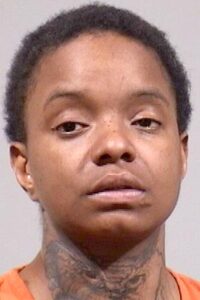Thomas introduces bill to let voters reassess millage
State Rep. David Thomas, a Republican who represents portions of Trumbull County, has introduced legislation to allow voters to put referendums on the ballot to lower or eliminate unvoted inside millage tax amounts.
The bill, co-sponsored with state Rep. Gary Click, R-Vickery, would permit voters to collect valid signatures of at least 15% of the total number of votes cast in the local government entity’s most recent governor’s election in order to place that question on the ballot.
Inside millage of 10 mills is assessed on properties and divided among counties, school districts, townships and / or municipalities.
The total amount of unvoted property tax inside millage last year was $3.9 billion, according to Thomas, R-Jefferson.
The 10 mills are divided differently throughout the state between three entities: counties, school districts, and either townships or municipalities, he said.
“Inside millage is one of the largest aspects to the property tax bill, which voters never had a say over, and is the piece of the bill which goes up in cost as property values go up,” Thomas said. “Giving voters the say over this unvoted increase part of their tax bill empowers the taxpayers.”
A separate referendum petition would be needed to seek the repeal of any or all of the inside millage collections, Thomas said.
Thomas, serving his first term in the Legislature, is the House Republicans’ point man on property tax reform.
Thomas said, “Taxpayers want essential services and they want to pay for them. But they want a say over how much and in what form that tax exists. This legislation gives them that say and sparks the conversation that maybe an income tax for our police is better, or a sales tax for EMS is a preferred way to fund it.”
This legislation, Thomas said, gives voters control over their taxes.
Thomas said he had proposed the abolition of inside millage, but it was met with “enough backlash from lawmakers” that he is offering this alternative.
“It’s hard to say voters can’t have a say over it,” he said.
The state Legislature is supposed to resume its session Oct. 1, with some committees meeting in September. That includes the House Ways and Means Committee, which has Thomas as its vice chairman and handles tax legislation.
The Ohio House met in special session July 21 seeking to override three of Gov. Mike DeWine’s property tax vetoes, but it could muster support to override only one.
The override is to eliminate the ability of school districts and local government entities to seek replacement or emergency levies from voters, as well as ban school districts from seeking fixed-sum emergency levies, substitute emergency levies and renewal levies with increases.
Because the House overrode just the one bill, the Senate never called a special session.
Thomas said he believes there is support to override the other two. The House and Senate have until Dec. 31, 2026, to override the vetoes.
One of the other vetoes that was supposed to be considered July 21 gives county budget commissions — made up of the county auditor, treasurer and prosecutor — control over tax rates and levies.
The commission would be permitted to unilaterally cut property tax rates if revenues exceed expenditures, even if voters approved ballot initiatives for that funding.
Also, the House initially planned to vote July 21 to override a provision DeWine vetoed requiring school districts to include emergency and substitute levies in their 20-Mill Floor, which guarantees they receive at least 20 mills of funding even if they are below that amount. This would have put about 200 of the state’s 611 school districts off the floor.
DeWine, a Republican like those who control the state Legislature, also vetoed a provision to limit school districts to having only up to 40% of their annual operating budget in their cash reserves. That was estimated to save $2.17 billion in property taxes and would have had the largest impact.
There was a provision that the 40% limit could be exceeded if the money is kept in a separate fund for construction and maintenance projects.
Republicans say there isn’t enough support to override that veto and the matter is dropped.
School district officials have strongly opposed the bills passed by the Legislature — which DeWine vetoed — saying it would devastate school finances and force more levies to appear before voters.
DeWine created a working group that is coming up with suggestions to resolve the rising costs of property taxes in recent years. It meets again today.
DeWine wants recommendations by Sept. 30.
Several local Republican legislators say they aren’t interested in the group’s recommendations and want to move ahead with property tax reforms.
Also, a group is circulating petitions for the November 2026 ballot to eliminate property taxes.

